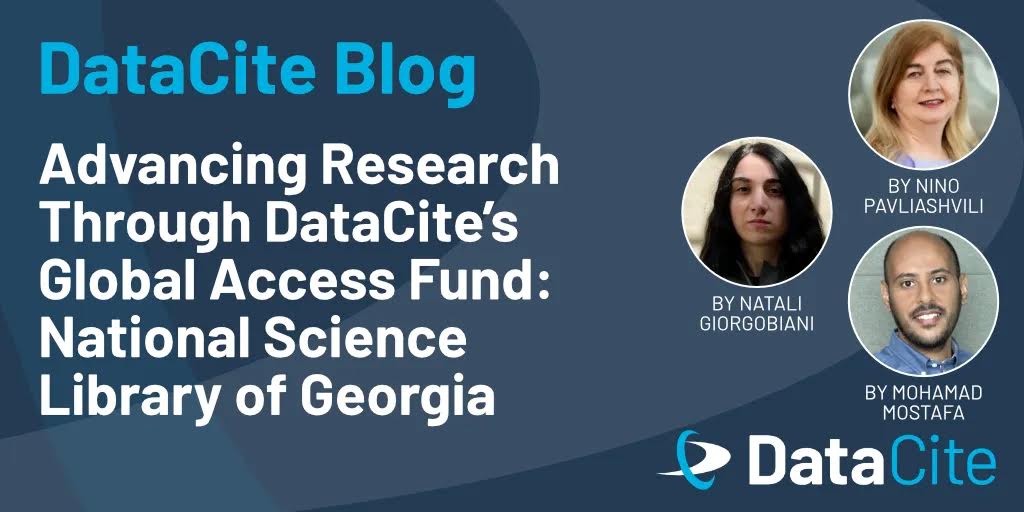
- This event has passed.
Datacite Global Access Fund (GAF): ბლოგპოსტი ეროვნული სამეცნიერო ბიბლიოთეკის პროექტის შესახებ
ნოემბერი 22, 2024 @ 08:00 - 17:00

გთავაზობთ ბლოგპოსტს ეროვნული სამეცნიერო ბიბლიოთეკის პროექტის შესახებ
„ინფრასტრუქტურის განვითარება და ინტეგრაცია“. პროექტი დაფინანსებულია
საერთაშორისო ორგანიზაციის Datacite Global Access Fund (GAF) მიერ და
ითვალისწინებს ეროვნული დონის სამეცნიერო ღია წვდომის ციფრული რეპოზიტორ
იუმის (openscience.ge) განვითარებას.
რეპოზიტორიუმი გააერთიანებს საქართველოში მოქმედი უმაღლესი საგანმანათლებ
ლო დაწესებულებებისა და კვლევითი ინსტიტუტების მკვლევართა პროფილებს, მათ
ნაშრომებსა და ინფორმაციას ორგანიზაციულ სტრუქტურულ ერთეულებზე.
ბლოგის წასაკითხად მიჰყევით ბმულს:
Advancing Research Through DataCite’s Global Access Fund: National Science Library of Georgia

